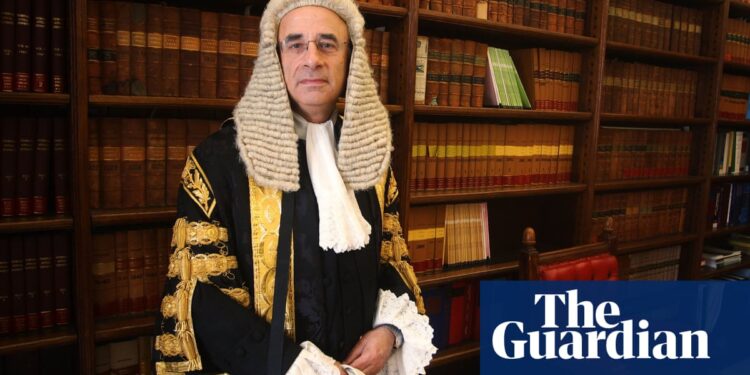Jury trials could be abandoned for some criminal cases in England and Wales under a radical overhaul proposed by ministers as the backlog of cases in crown courts hit a record high.
A review, to be led by the former high court judge Sir Brian Leveson, will consider creating new “intermediate courts” where cases could be heard by a judge flanked by magistrates, in an attempt to speed up the length of trials.
These would apply to some criminal cases that are too serious for magistrates courts but deemed not serious enough for the crown court.
The announcement comes after the Guardian launched its Courts in crisis series, examining what unprecedented delays and chaos mean for victims, the accused and the justice system as a whole.
The idea of abandoning jury trials for some crown court caseswas floated by the former lord chief justice Lord Thomas in an interview with the Guardian this week.
But the proposal will lead to concerns about an erosion of the centuries-old principle of jury trials, in which 12 people are chosen at random to hear the evidence and decide whether a defendant is guilty.
The new Leveson review was announced by the Ministry of Justice (MoJ) on Thursday as fresh figures revealed the backlog of criminal cases waiting to be dealt with by crown courts in England and Wales stood at 73,105 at the end of September – a new record high.
In addition, Leveson, who is best known for chairing the public inquiry into press ethics, will also be asked to consider whether magistrates should be empowered to look at more cases to free up capacity in the crown court to consider the more complex, serious crimes.
By reclassifying some offences and extending magistrates’ sentencing powers, certain trials could move to magistrates’ courts, the MoJ said.
This would be in addition to moves earlier in the year to double the length of custodial sentences that can be handed out by magistrates, from six months to 12 months.
Shabana Mahmood, the justice secretary, said: “The scale of the crown court crisis inherited by this government is unprecedented. Despite the efforts of judges, lawyers and court staff, we simply cannot continue with the status quo.
“To deliver the government’s bold plan for change and make our streets safer, we require once-in-a-generation reform of a courts system stretched to breaking point. In many cases, victims are waiting years to see their perpetrator put before a judge, and we know for many victims, justice delayed is as good as justice denied.
after newsletter promotion
“We owe it to victims to find bold, innovative approaches that will speed up justice, deliver safer streets and send a clear message to criminals that they will quickly face the consequences of their actions.”
The Leveson review will also look at where technology can be used to drive efficiencies and improve how the crown court functions.
The crown court caseload increased to 73,105, 3% up on the previous quarter and 10% up on the previous year, and has close to doubled since the end of 2019, when it stood at 38,016 cases, according to the MoJ data published on Thursday.
Even if the crown court were to operate at maximum capacity, the backlog would continue to grow, the MoJ warned.
Leveson is expected to report back with initial recommendations by spring 2025.







